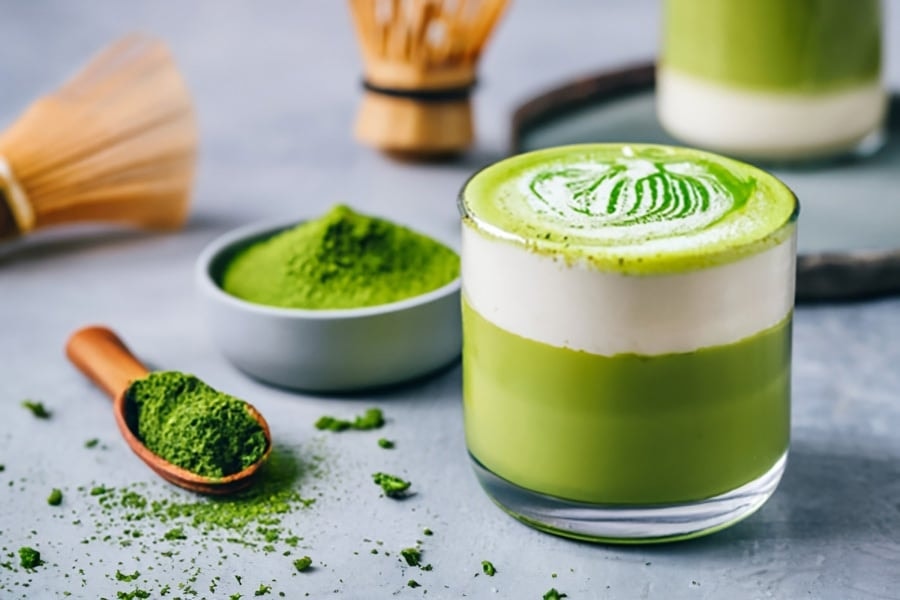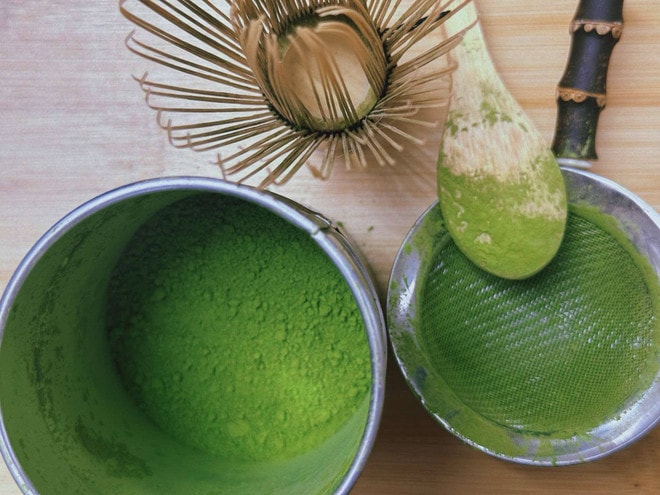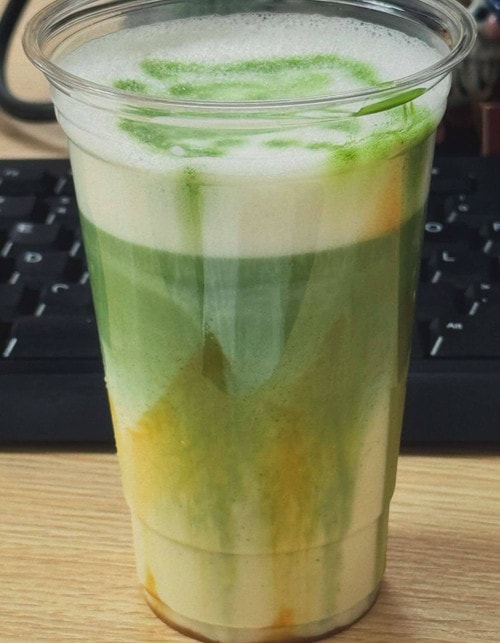
What is matcha?
Matcha is now very popular in health food stores and cafes, often served as tea, latte, dessert, or mixed drinks.
Similar to other green teas, matcha is made from the leaves of the Camellia sinensis plant. However, the cultivation and processing methods of matcha are different, resulting in its unique nutritional composition.
Tea plants used to produce matcha are shaded for most of their growing season, which helps increase chlorophyll and amino acid content and gives the leaves a darker green color.
After harvesting, the veins and stems of the leaves are removed, and then they are ground into a fine powder – this is matcha.
Because it uses the whole tea leaf, matcha has significantly higher levels of caffeine and antioxidants compared to regular green tea.

Numerous studies have shown that matcha can protect the liver, improve cardiovascular health, and support weight loss.
Rich in antioxidants
Matcha contains high levels of catechins, a group of plant compounds that act as natural antioxidants. Antioxidants help neutralize free radicals – molecules that damage cells and contribute to the development of chronic diseases.
Although growing in the shade reduces the catechins in the leaves, when brewed with water, matcha releases three times more catechins than other green teas.
A study on mice showed that matcha supplementation reduced free radical-induced cell damage and increased antioxidant activity. Adding matcha to the diet may enhance cellular protection and reduce the risk of chronic diseases.
It can protect the liver.
The liver plays a vital role in eliminating toxins, metabolizing drugs, and absorbing nutrients.
A 2015 meta-analysis of 15 studies showed that drinking green tea was associated with a reduced risk of liver disease. However, some experts in 2020 suggested that while matcha may lower liver enzymes in people with non-alcoholic fatty liver disease (NAFLD), it may increase liver enzymes in people without the disease. Further human studies are needed to determine the specific effects of matcha.
Enhance brain function
Some components in matcha may help improve cognitive function. One study of 23 people showed that those who consumed matcha (in the form of tea or energy bars) had faster reaction times, better memory, and higher concentration compared to the placebo group.
Another study on older adults also showed that taking 2g of green tea powder daily for 2 months improved cognitive function.
Matcha contains more caffeine than regular green tea (19-44 mg/g compared to 11-25 mg/g) and also contains L-theanine – a compound that helps increase alertness without causing fatigue after the caffeine wears off.
Support for cancer prevention

Matcha contains epigallocatechin-3-gallate (EGCG) – a type of catechin that has shown potential cancer-preventing properties in some in-tube and animal studies.
While these results are promising, more clinical evidence in humans is needed to confirm the effectiveness of matcha in cancer prevention.
Good for cardiovascular health.
Several studies suggest that drinking green tea—which has a similar composition to matcha—helps reduce the risk of cardiovascular disease. Green tea has been shown to be associated with lower blood pressure, reduced bad cholesterol, and a lower risk of cardiovascular complications compared to coffee.
Although one animal study showed differing results, the majority of evidence still supports the cardiovascular benefits of matcha.
Weight loss support
Green tea is a popular ingredient in weight loss products due to its ability to boost metabolism. A 2020 research review concluded that combining green tea (up to 500 mg per day) with diet and exercise can help reduce body mass index (BMI) after 12 weeks.
Because matcha has a similar composition to green tea, it may also offer similar benefits in supporting weight management.
TB (summary)Source: https://baohaiduong.vn/tac-dung-bat-ngo-cua-matcha-412201.html































![[Photo] General Secretary To Lam works and extends New Year greetings to the Party Committee, government and people of Dak Lak province.](https://vphoto.vietnam.vn/thumb/1200x675/vietnam/resource/IMAGE/2026/02/11/1770808701306_ndo_tl_img-4099-5201-jpg.webp)






































































Comment (0)